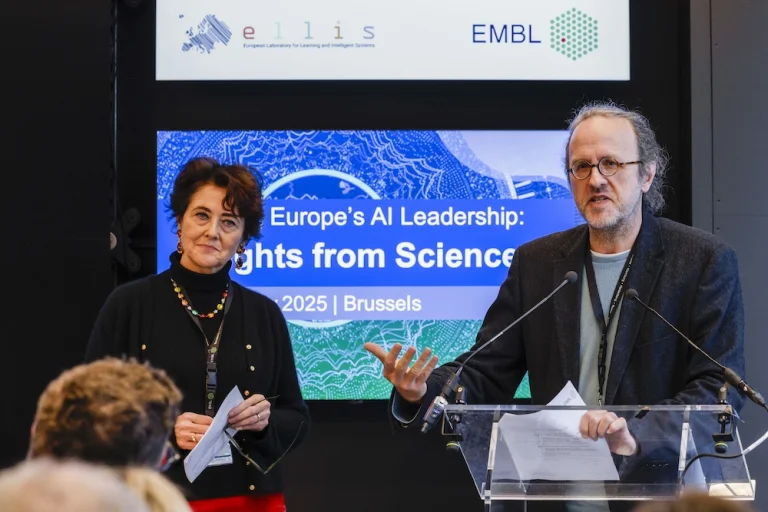



EMBL and ELLIS deepen relationship to drive AI in European life science research, training, and technology
The European Molecular Biology Laboratory (EMBL) and ELLIS have agreed upon a Memorandum of Understanding (MoU) to promote interdisciplinary training and develop innovative projects that address pressing challenges in human and planetary health. EMBL Director General Edith Heard and ELLIS President Bernhard Schölkopf signed the agreement at an event on “Shaping Europe’s AI Leadership” in Brussels on 14 January 2025.
The strategic partnership will focus on enhanced collaboration in the fields of AI and life sciences through stimulating scientific exchange, training and developing innovative projects. Leveraging their combined expertise and networks, the two organisations are poised to position Europe at the forefront of AI-driven advancements in life sciences research.
The MoU outlines a framework for joint initiatives, including workshops, training programmes, and collaborative research projects that will harness the power of AI to tackle key questions in the life sciences. In doing so, EMBL and ELLIS aim to foster a vibrant scientific community that can respond to the evolving needs of research, innovation and increased competitiveness in Europe.
“By further integrating AI into our scientific endeavors, we can unlock new insights and drive transformative solutions that benefit society as a whole,” said Edith Heard, EMBL Director General. “We are excited to deepen our partnership with ELLIS, which aligns very strongly with our mission to advance life sciences through interdisciplinary research.”
The partnership between EMBL and ELLIS began in 2020 with the establishment of the ELLIS Unit Heidelberg, uniting leading AI researchers in medicine and life sciences. EMBL scientists were instrumental in founding the unit, fostering collaboration across institutes and elevating the international impact of AI research in Heidelberg. The new agreement strengthens this relationship, aligning with ELLIS as a pan-European network of AI researchers and advancing interdisciplinary innovation at the intersection of AI and life sciences.
EMBL produces and hosts some of the largest, open access biological databases in the world thanks to the biodata archives hosted at its European Bioinformatics Institute (EMBL-EBI). EMBL provides access to vast amounts of high-quality biological data across scales - from sequences of DNA, RNA, and proteins to cellular and tissue images. These data resources are not only used by scientists across the world, they are an essential basis for the training of AI models (as exemplified by AlphaFold), as well as to test and validate such models.
“Machine learning has been transforming the way we build scientific models in many domains. Building upon training data, it excels whenever systems are too complex to be modeled explicitly,” said Bernhard Schölkopf, ELLIS President. “EMBL understood this early on, making it the perfect partner in this endeavor. Our joint goal is to enable scientific breakthroughs that improve health and our understanding of life itself.”
The partnership will also focus on enhancing data infrastructures and promoting researcher mobility, particularly for early-career scientists. By consolidating expertise and resources, EMBL and ELLIS aim to create a robust ecosystem that fosters innovation and excellence in AI research across Europe.
EMBL and ELLIS are committed to a shared vision of advancing scientific knowledge and addressing global challenges through innovative research. The signing of this MoU marks the beginning of a promising journey towards a future where AI in the life sciences in Europe continue to deliver results that help to improve human and planetary health.
